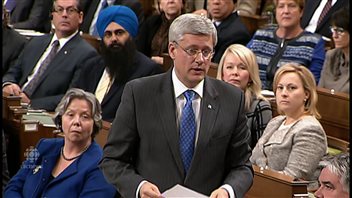Environmentalists are optimistic that after years of delay, the Canadian province of Ontario will soon put a price on carbon emissions. Ontario made a bold move to reduce greenhouse gas emissions last year when it closed all of its coal-fired power plants.
“We know that the province has committed to developing a climate change strategy to get them to meet their 2020 targets and we’ve had a clear signal that carbon pricing will be part of that strategy,” says Keith Brooks, director of the clean economy program at the advocacy group Environmental Defence.
ListenMeaningful name change
Ontario has signed a memo of understanding with the province of Quebec to create a market for carbon and it recently re-branded its environment department as Ministry of the Environment and Climate Change. The minister in charge, Glen Murray recently told the Globe and Mail newspaper “We’re looking at how we can transition Ontario to a low-carbon economy through initiatives such as setting a price on carbon.” Murray also said his plan would include cleaner fuel standards and energy conservation measures.
Two carbon pricing possibilities considered
It is not yet clear whether Ontario will opt for a simple tax on carbon as has the western province of British Columbia. Its tax is deemed to have been successful and to have not hurt the economy. Alternatively, Ontario could opt for a cap-and-trade system, whereby companies a limited as to how much carbon they can burn. If they exceed the limit they must buy a credit from a company that has exhausted less than its allotted amount. The province of Quebec and California have created a joint cap-and-trade system and Ontario has joined.

‘We need the federal government to step in’
While some provinces are moving ahead on reducing greenhouse gas emissions, the federal government has reneged on its promise to regulate emissions from the oil and gas industry. “Canada’s moving toward a low-carbon, kind of clean economy, that’s a sure thing,” says Brooks. “And we need the federal government to step in and play their role as well instead of resisting this transition.”







For reasons beyond our control, and for an undetermined period of time, our comment section is now closed. However, our social networks remain open to your contributions.